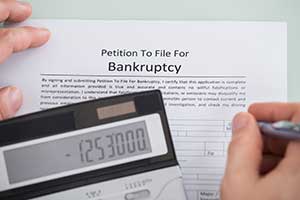
Are You in Debt? You’re Not Alone.
If you are struggling with mounting debt, you are not alone. Too many Americans are faced with debt that they cannot meet and are fighting to keep up with. Nationwide, data reported by the Urban Institute in a new national map of indebtedness, shows that 33 percent of Americans hold debt that is currently in collection, with a median amount of $1,450. Being in debt can cause... CONTINUE READING











